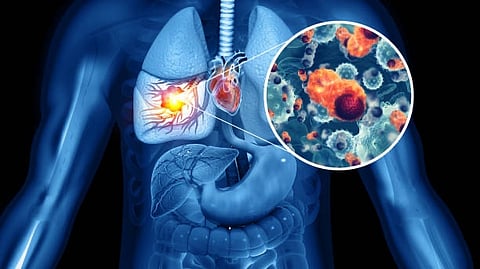“Ideally, these quality metrics should be met as frequently as possible in any lung cancer surgery,” Puri said. “However, as our data show, adherence to these metrics can be highly variable across the U.S.”
For the study, the researchers analyzed de-identified medical records in a database maintained by the U.S. Veterans Health Administration, the nation’s largest integrated health-care delivery system. The researchers examined information involving 9,628 patients with early-stage non-small cell lung cancer who underwent surgery from Oct. 1, 2006, through Sept. 31, 2016. The researchers developed a surgical quality score reflecting the association between the five metrics and overall survival.
The average age of the VA patients was 67.8 years. The patients were predominantly male and white; however, statistical modeling controlled for different ages, genders and races.
Researchers also studied adherence to quality metrics and overall survival rates among 107,674 nonveteran patients who were listed in the National Cancer Database as patients from 2010 to 2016.


